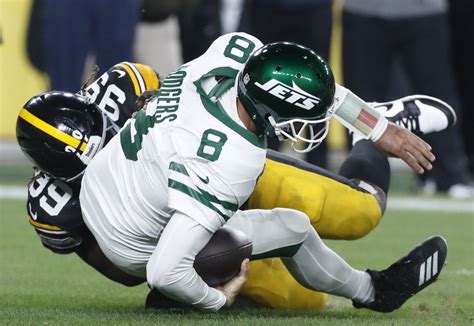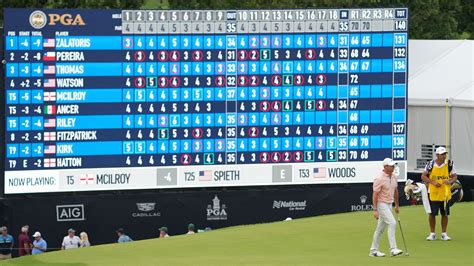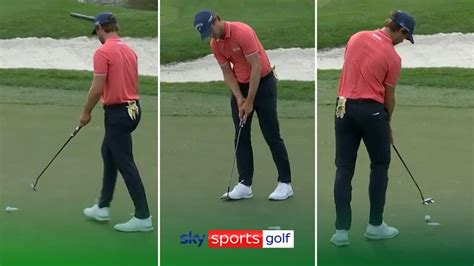
Patrick Ewing has resigned as Georgetown University’s men’s basketball coach after six seasons, citing weariness with criticism and a desire to move forward.
Patrick Ewing’s tenure as the head coach of Georgetown University’s men’s basketball team has come to an end. After six seasons marked by considerable challenges and unmet expectations, the former Hoyas legend has stepped down from his position, citing an increasing fatigue with the persistent criticism and a compelling need to move forward. The decision, officially announced Thursday, concludes a chapter filled with both promise and disappointment, leaving the storied program in search of a new leader to revitalize its basketball fortunes.
Ewing, a celebrated alumnus who led Georgetown to its only national championship in 1984, accepted the coaching role in 2017 with hopes of restoring the program to its former glory. However, his tenure was largely unsuccessful, with a cumulative record of 75-109 and only one NCAA Tournament appearance, which occurred in 2021 after a surprising run to the Big East Tournament title. This past season proved particularly difficult, as the Hoyas finished with a 7-25 record, including a dismal 2-18 mark in Big East play.
“I just got tired of hearing it,” Ewing stated, alluding to the constant scrutiny he faced during his time at the helm. While he did not explicitly detail the nature of the criticism, it is widely understood that the team’s struggles on the court, coupled with the high expectations associated with the Georgetown basketball program, created a pressure-cooker environment.
Georgetown University President John J. DeGioia expressed gratitude for Ewing’s service to the university. “Patrick Ewing is and will always be a true Hoya legend,” DeGioia said in a statement. “It is an honor to have his name forever emblazoned in the rafters of Capital One Arena. Patrick’s commitment to his alma mater has been unwavering. We are deeply grateful for his service to Georgetown.”
The departure of Ewing marks a pivotal moment for Georgetown basketball. The university now faces the task of finding a successor capable of returning the program to national prominence. The new coach will inherit a program with significant resources and a rich tradition but also one that has struggled to compete consistently in the modern landscape of college basketball.
A Tenure Marked by Challenges
Ewing’s coaching career at Georgetown was fraught with challenges from the outset. Despite his legendary status as a player, translating that success to the sidelines proved difficult. The changing landscape of college basketball, with its emphasis on recruiting, player development, and strategic innovation, presented a steep learning curve.
One of the primary hurdles Ewing faced was recruiting. The rise of one-and-done players and the increasing influence of name, image, and likeness (NIL) deals have transformed the recruiting landscape. Georgetown, traditionally a program that relied on attracting top talent from the East Coast, struggled to compete with programs offering lucrative NIL opportunities and a faster track to the NBA.
Player development also proved to be an area of concern. While Georgetown has produced talented players under Ewing, the program struggled to consistently develop those players into high-impact performers. This lack of player development contributed to the team’s inability to compete with the top programs in the Big East Conference.
Ewing’s coaching style and strategic approach were also subject to scrutiny. Critics questioned his ability to adapt to the evolving game and implement effective offensive and defensive schemes. The team’s struggles on the court often reflected a lack of cohesion and a failure to execute game plans effectively.
The 2021 Big East Tournament Run: A Brief Respite
Amidst the challenges, there was a moment of triumph that offered a glimpse of what could have been. In 2021, Georgetown defied expectations by winning the Big East Tournament, securing an automatic bid to the NCAA Tournament. The Hoyas, seeded eighth in the tournament, embarked on an improbable run, defeating higher-seeded teams such as Villanova and Creighton.
The tournament victory provided a brief respite from the criticism and offered hope that Ewing was turning the corner. However, the success proved to be short-lived. Georgetown was quickly eliminated from the NCAA Tournament, and the team struggled mightily the following season.
The 2021 Big East Tournament run highlighted both the potential and the limitations of Ewing’s tenure. While he was able to motivate his players and guide them to a memorable victory, he was ultimately unable to sustain that success over the long term.
The Search for a New Leader
With Ewing’s departure, Georgetown University is now embarking on a crucial search for a new head coach. The university is expected to conduct a thorough and comprehensive search, considering candidates with a proven track record of success in college basketball.
Several names have already been mentioned as potential candidates, including prominent assistant coaches and head coaches from other programs. The university is likely to prioritize candidates who have experience recruiting in the modern landscape, developing players, and implementing effective offensive and defensive schemes.
The new coach will inherit a program with significant resources and a passionate fan base. However, they will also face the challenge of rebuilding a program that has struggled to compete consistently in recent years. The success of the new coach will depend on their ability to attract top talent, develop players, and create a winning culture.
The Legacy of Patrick Ewing at Georgetown
Despite the challenges and disappointments of his coaching tenure, Patrick Ewing’s legacy at Georgetown University remains secure. He will always be remembered as one of the greatest players in the program’s history, a dominant center who led the Hoyas to unparalleled success in the 1980s.
Ewing’s decision to return to Georgetown as head coach was driven by a deep sense of loyalty and a desire to give back to the university that had given him so much. While he was unable to replicate his playing success as a coach, his commitment to Georgetown never wavered.
His tenure, although ultimately unsuccessful in terms of wins and losses, was marked by moments of inspiration and a genuine desire to restore the program to its former glory. Ewing’s contributions to Georgetown basketball, both as a player and a coach, will be remembered for generations to come. The resonating effect of seeing a legend return and pour his heart into his alma mater is something that numbers simply cannot quantify.
The impact of Ewing’s time as head coach is nuanced and complex. While the on-court results fell short of expectations, his presence undoubtedly resonated with alumni and fans. He brought a level of prestige and recognition to the program that few other coaches could have matched. Furthermore, his deep connection to Georgetown created a sense of unity and pride within the university community.
However, the realities of college basketball demand results, and ultimately, Ewing’s inability to consistently deliver victories led to his departure. His legacy will be debated and analyzed for years to come, but one thing remains certain: Patrick Ewing will always be a Hoya, and his contributions to Georgetown basketball will never be forgotten.
The challenges he faced were not unique to him. Many legendary players have struggled to transition into successful coaching roles. The skills and attributes that make someone a great player do not necessarily translate into coaching prowess. Coaching requires a different skill set, including leadership, communication, strategic thinking, and the ability to motivate and develop players.
The Future of Georgetown Basketball
As Georgetown University embarks on a new chapter in its basketball history, the focus shifts to the future. The university is committed to finding a head coach who can build a winning program and restore the Hoyas to national prominence.
The new coach will face a challenging task, but they will also have the opportunity to shape the future of Georgetown basketball. With the right leadership and a commitment to excellence, the Hoyas can once again compete with the top programs in the Big East Conference and contend for national championships.
The search for a new coach is expected to be thorough and deliberate. The university will likely consider a wide range of candidates, including experienced head coaches, up-and-coming assistant coaches, and individuals with a proven track record of success. The ultimate goal is to find a coach who can connect with players, develop talent, and build a winning culture.
The future of Georgetown basketball is uncertain, but the university is committed to providing the resources and support necessary to build a successful program. With the right leadership and a renewed commitment to excellence, the Hoyas can once again become a force to be reckoned with in college basketball.
Frequently Asked Questions (FAQ)
1. Why did Patrick Ewing resign as Georgetown’s head coach?
Patrick Ewing cited fatigue with the persistent criticism and a desire to move forward as the primary reasons for his resignation. After six seasons of struggling to meet expectations, Ewing felt it was time for a change. “I just got tired of hearing it,” he stated, alluding to the constant scrutiny he faced.
2. What was Patrick Ewing’s record as head coach of Georgetown?
Ewing’s overall record as head coach of Georgetown was 75-109 over six seasons. In Big East Conference play, his record was 27-71. The team only made one NCAA Tournament appearance, which came in 2021 after winning the Big East Tournament.
3. What was Patrick Ewing’s greatest accomplishment as head coach?
Ewing’s greatest accomplishment as head coach was leading Georgetown to the 2021 Big East Tournament championship, securing an automatic bid to the NCAA Tournament. This unexpected victory provided a brief moment of hope and a glimpse of the program’s potential.
4. Who are some potential candidates to replace Patrick Ewing as Georgetown’s head coach?
While Georgetown has not officially announced a list of candidates, several names have been mentioned as potential replacements. These include prominent assistant coaches from other programs and head coaches with a proven track record of success in college basketball. The university is expected to conduct a thorough search to find the best fit for the program.
5. What challenges will the new Georgetown head coach face?
The new Georgetown head coach will face several significant challenges, including rebuilding a program that has struggled to compete consistently in recent years, attracting top talent in the modern recruiting landscape, developing players, and creating a winning culture. They will also need to navigate the pressures of coaching at a high-profile program with a rich tradition.
Expanded Context and Analysis
The departure of Patrick Ewing from Georgetown underscores a broader narrative within college athletics—the increasing pressure on coaches to deliver immediate results. The modern college sports landscape is characterized by heightened expectations, amplified media scrutiny, and the ever-present influence of social media. Coaches are no longer judged solely on their ability to develop players and build a program over time; they are expected to win consistently and compete for championships.
This pressure has intensified in recent years due to factors such as the rise of the transfer portal, which allows players to switch schools with greater ease, and the advent of name, image, and likeness (NIL) deals, which have transformed the recruiting landscape. These changes have created a more volatile environment for coaches, making it more difficult to build and maintain a successful program.
Ewing’s situation at Georgetown was particularly challenging due to his legendary status as a player. While his history with the university undoubtedly garnered him initial support and goodwill, it also created a higher level of expectation. Fans and alumni hoped that he could restore the program to its former glory, and when those expectations were not met, the criticism intensified.
Moreover, Ewing’s coaching style and strategic approach were often questioned. Some critics argued that he was slow to adapt to the evolving game and that his teams lacked the tactical sophistication necessary to compete with the top programs in the Big East Conference. Others pointed to his struggles with recruiting, particularly in the face of increased competition from programs offering lucrative NIL deals.
The 2021 Big East Tournament victory provided a brief respite from the criticism and offered a glimpse of what could have been. However, it ultimately proved to be an outlier, as the team struggled mightily in the following season. The inconsistency highlighted the challenges Ewing faced in building a sustainable winning program.
The search for a new head coach represents a critical juncture for Georgetown basketball. The university must find a leader who can not only recruit and develop talent but also create a cohesive and competitive team culture. The new coach will need to embrace modern coaching techniques, including data analytics and player development strategies, while also understanding and respecting the program’s rich history and tradition.
Georgetown’s resources and reputation should attract a strong pool of candidates. The university’s location in a major metropolitan area, its academic prestige, and its passionate fan base all make it an attractive destination for aspiring coaches. However, the challenges of rebuilding a program that has struggled in recent years should not be underestimated.
The future of Georgetown basketball hinges on the success of the new head coach. With the right leadership and a commitment to excellence, the Hoyas can once again compete for championships and restore the program to its former glory. However, it will require patience, dedication, and a willingness to adapt to the ever-changing landscape of college basketball.
In conclusion, Patrick Ewing’s departure from Georgetown marks the end of a chapter filled with both promise and disappointment. While his tenure as head coach did not achieve the desired results, his legacy as a Hoya legend remains secure. The university now faces the task of finding a new leader who can build a winning program and restore Georgetown basketball to its rightful place among the nation’s elite. The challenges are significant, but the potential rewards are even greater. The entire college basketball world will be watching closely to see how Georgetown navigates this crucial transition.









